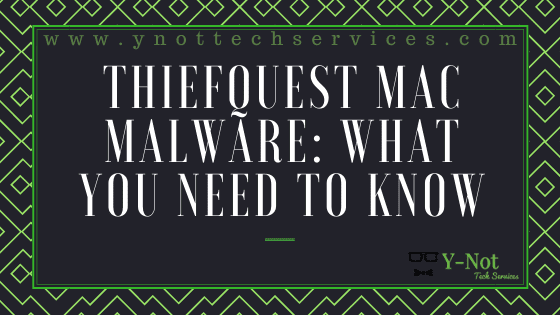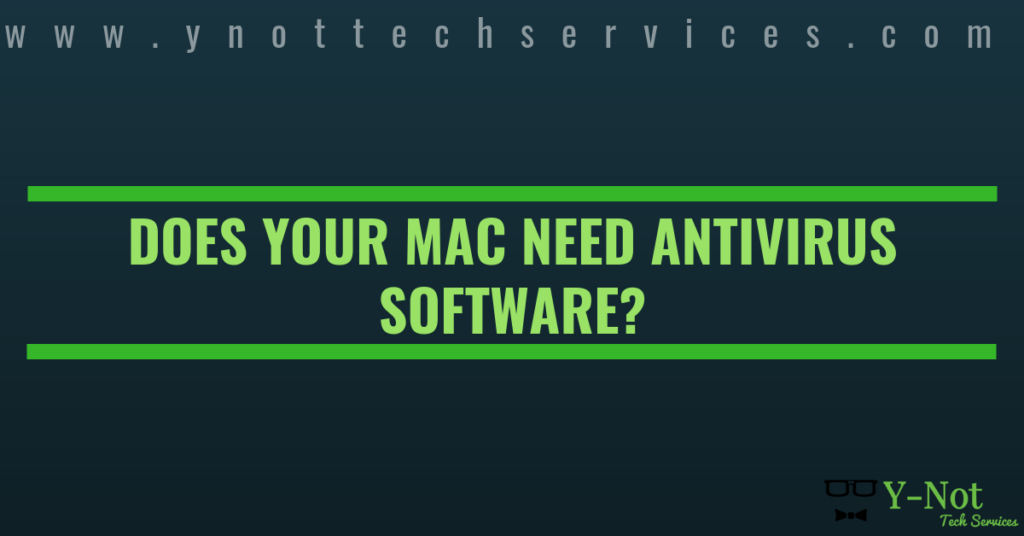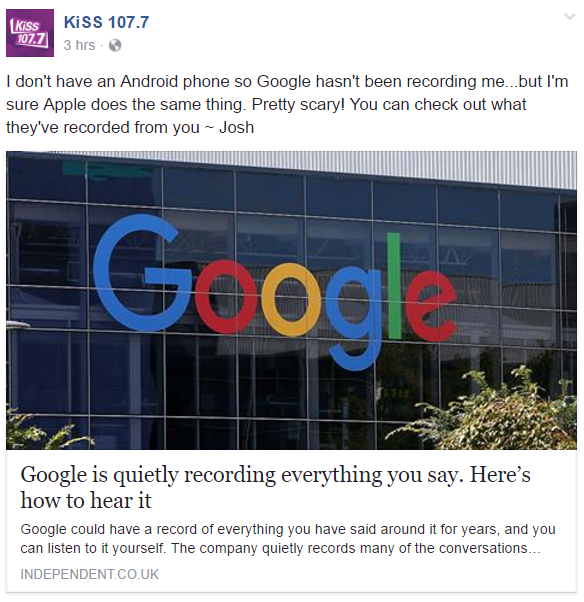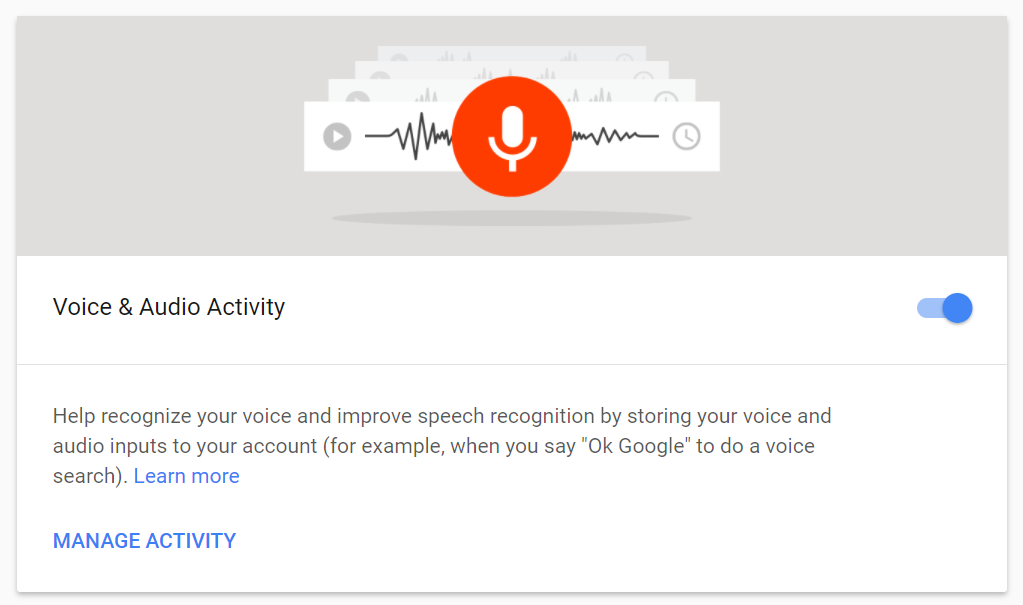A new ransomware variant has been discovered for macOS. Yes, even Mac/Apple computers can get infected with malware like viruses and RansomWare. Ransomware is a specific type of malware that targets your files and locks them up. It then requests that you send them payment in order to get your files back! Of course, even after you pay there is no guarantee that these criminals will actually unlock your files. The biggest take away from this is that you should be using virus protection on your Apple computer, be it an iMac, Macbook Pro, Mac Pro or Macbook Air. The other important puzzle piece: A good backup. It’s always best to keep from being hit with malware in the first place, but in case you do get hit it’s extremely important to have a solid off-site backup available. A simple USB Hard Drive attached to your computer is not as ransomware can simply lock the files stored there as well. [Read more…]
OK Google, How Safe Are Smart Home Assistants? | Y-Not Tech Services – Lethbridge, AB Computer Repair
 OK Google, How Safe Are Smart Home Assistants?
OK Google, How Safe Are Smart Home Assistants?
Are you using Siri, Google, or Alexa? When you talk to a home assistant, you join a growing number of smart homes.
Smart home assistants search online, start phone calls, order groceries, play music, turn lights on. All with a single spoken command. [Read more…]
The Best Malware Protection Brands Available | Y-Not Tech Services – Lethbridge, AB
 It’s more important than ever to have adequate protection online. Viruses, malware, hackers, and thieves are everywhere online and if your devices aren’t secured you’ll be the perfect target. To keep your devices protected, let’s look at the Best Malware Protection for each of your devices. [Read more…]
It’s more important than ever to have adequate protection online. Viruses, malware, hackers, and thieves are everywhere online and if your devices aren’t secured you’ll be the perfect target. To keep your devices protected, let’s look at the Best Malware Protection for each of your devices. [Read more…]
Does Your Mac Need Antivirus? | Y-Not Tech Services | Lethbridge, AB
I get asked this question a lot when I’m working with clients. It seems that every Windows User knows they need an Antivirus (although they often don’t have one that’s properly installed and updated), but Apple users are more hesitant about it, and I often get asked:
Should I be using Antivirus on my Mac?
Android vs. iOS Which should I use? | Y-Not Tech Services – Lethbridge, AB
I’ll start by saying that I am pretty firmly in the Android camp. I’m almost an Android fanboy. But I do see the appeal of Apple products, and I know that they are a better fit for many people. With that in mind, I am always subjective when helping a client decide which one to buy. Among my friends, it’s pretty much common knowledge that I am a fan of Android products. So when one of my close friends got an iPad as an anniversary present she was almost apologetic when showing it to me. “Sorry, I know it’s not an Android.” She said. What she didn’t know at the time was that her husband had come to me for advice when looking for a tablet to buy her. I had shown him the option (both Android and iOS) but ultimately recommended he buy her an Ipad. She had a very specific need she wanted to fill with a tablet and the best solution I found was an iOS app. Between that and the fact that she used an iPhone regularly, the iPad seemed like the best choice. Often, when you already have a smartphone, it is wise to get a tablet that matches the phone’s type. You know how to use it and often app purchases can transfer between them. Of course, if you’re not happy with your smartphone, this wouldn’t be the best choice!
Ultimately the choice between Android or iOS is a matter of personal preference. Both ecosystems have matured to the point that almost anything you can do on one, you can do on the other as well. So wait. If they can do the same thing, then why would it matter which one you use? It comes down to the way you want to use your device. Generally, if you want to tinker and customize your device, Android would be the better option. While iOS lacks some of the customization options that Android offers, this makes it easier to use out of the box.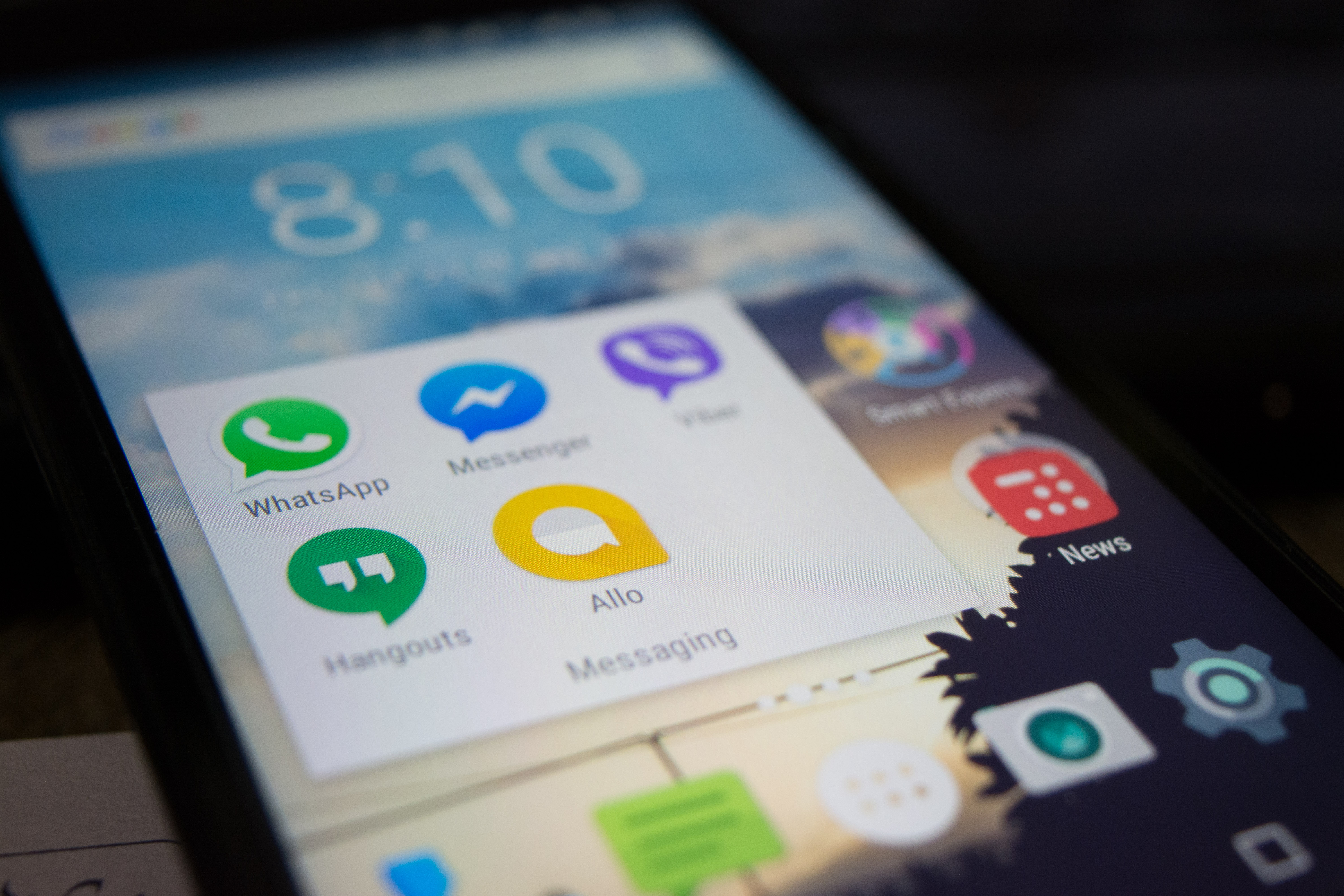
VS
When looking at Android devices, you will be met with a flood of options. Hundreds of manufacturers build Android phones and tablets. And each of those manufacturers will have multiple devices released each year. This can be a good thing because there will be a device of every color, size, performance, and budget available. But the options can be overwhelming, even paralyzing. Apple makes all iOS devices themselves. This means they have control of everything from start to finish. Hardware and software are all designed by Apple, meaning that it will all work together. Apple generally only puts out one or two models a year, so there aren’t as many options to choose from, but this makes it easier to choose your device when it’s time to upgrade. If the myriad of options for Android or Apple devices is overwhelming, I can help.
Other Considerations
While the app stores for iOS and Android devices are both growing, and continually gaining more parity to each other, some apps remain exclusive to one ecosystem or the other. Therefore, if there is an app or feature you cannot do without, be sure to check the corresponding app store before making your decision. This is especially important when making the switch from Android to iOS or vice versa. Another consideration to keep in mind is compatibility with business networks. If you plan to use your device as part of ‘Bring Your Own Device’ program with the company you work for be sure to check with your network Admin/IT department to make sure the device you are considering is compatible with any additional security measures they may have in place.
Other Options?
When talking about mobile devices today, Android and iOS rule the debate. There are other options out there. For one thing, ‘dumb’ phones are still readily available and might be the best choice for you. They are certainly a more budget-friendly option both in the device cost and the monthly carrier fees. Another option is Windows Phone. While I like the idea of Windows Phone, they just don’t have the app support to make them a real contender in my eyes. It’s sad, really. My first smartphone was an HTC Touch running Windows Mobile 6.1 Professional. I loved that phone, and when Microsoft announced Windows Phone, I was excited and ready to make the switch from the Android ecosystem I had been using for a few years at that point, but when Windows Phone came to market, it felt half finished, and even today a lot of the apps I depend on and use daily aren’t available. It’s because of this that I have a hard time recommending Windows Phone.
If you are still having trouble deciding what type of device you should get or need more information, you can contact me and set up an appointment to go over your needs and find the perfect mobile device for you! Why not let Tony help?
In Response to Josh at KISS 107.7 on Google Voice Storage
Today Josh at KISS 107.7 (I still want to call it The River) in Lethbridge, AB posted on Facebook about voice recordings Google takes on Android phones. By the way Josh, if you use Google Search app on your iPhone the same thing will happen. If you use Siri or Voice dictation on Apple then that data is also stored (and allegedly sold to third parties – I don’t have time to research this at the moment, but a quick google search reports that they admitted to it). Should we care?
Personally, I don’t mind. If Google wants to use recordings of me saying “OK Google, what’s the weather like? … OK Google, Remind me to go back to work in 30 minutes… OK Google, remind me to buy milk when I’m done work” to improve their voice recognition, then I’m OK with that. Google and Apple both have expansive privacy policies. As an end user it is up to me to read and understand them. I don’t personally view it as a violation of my privacy that they store these recordings. Especially not when they make them available to me and I can choose to delete them at any time. I can also choose to turn this feature off completely. Here’s how:
- Visit https://myaccount.google.com/activitycontrols (this page is also home to other Google Activity Switches – look around and choose what you want them keeping)
- Sign into your Google account if prompted
- Scroll down to “Voice and Audio Activity” and flip the switch (see image below)
- You can also choose to click Manage Activity and listen/delete stored data.
Google claims Voice Activity is only saved after you say OK Google or touch the microphone. Some users report they found saved data in their Activity page even though they don’t use those features. I’m still working on trying to find out why this would be. My first guess is that it would be like a pocket dial… You know, when you leave a 15 minute voice mail and it’s just you watching Netflix because your phone got activated from your pocket. The same could happen with the microphone button on your phone. And with Google Assistant now, all it takes it pressing and holding your home button for Google to begin listening to you. If you don’t want Google to have this information, simply follow the above directions. Apple’s site says that when you delete Siri and Dictation that they will delete your stored data
Who Pays for Google
Google is a huge company with huge profits, yet they offer us a lot of services for free. Gmail, Google Search, Google Photos, Google Assistant, Google Drive and it’s suite of online office compatible programs, and the list goes on and on. So how is this all paid for? The answer is mainly through Ads. Google is first and foremost an advertising company. When you search, there are paid results at the top of the list. There are ads in your Gmail inbox. And to make those ads match you, Google uses the personal data we give it to build up an advertising profile on us.
Google products and services are not free. We just don’t pay for them with cash. We pay with our data. Everything we type in or say to Google is considered our giving them that data. So far I haven’t heard any reports of Google using this data in negative ways.
With large companies gaining access to more and more of our data this is a conversation that needs to be had. We need to make ourselves aware of who has our data and what they are doing with it. Both Google and Amazon have devices that are designed to sit in our homes and listen to us. There has been at least one case where data from an Amazon Alexa device may have been able to solve a murder. So is this an invasion of privacy. Which is more important: Protecting our data or solving a crime?
In conclusion, my personal stance is that I’m not worried about Google having my personal data. The data of my clients, however, is encrypted and I only use secure payment options. As I said, if google wants to store me asking for directions to Disneyland on their servers, that’s fine. I understand why some people are upset by this. I guess part of why I’m not upset is because it has never come as a surprise to me that this data is being stored. To many people it is a surprise, and that surprise leaves them feeling somewhat violated. My honest advice: If you don’t want a company to have data on you, don’t use any product from that company. For Google this would include Chrome, Keep, Android, Search, Gmail, Drive, Chromebooks, Assistant, Google Now, and other products and services offered by Google. The same can be said for other companies like Amazon, Apple, Samsung and Microsoft. It’s increasingly hard to get away from data collection, and in many circumstances legislation is still lacking in dealing with this.
Let me know in the comments how you feel about this. Do you feel your privacy is being invaded by these companies? Do you plan to delete whatever data you can? Will you be reading the privacy policies and End User License Agreements (EULA) more closely before using digital devices?
If any of this was confusing or you’d like help sorting out your privacy settings on any device, you can book an appointment with Y-Not Tech Services and we can help. Why not let Tony take care of it?


